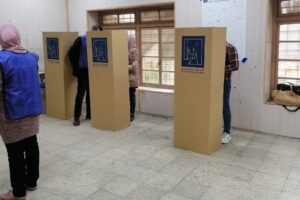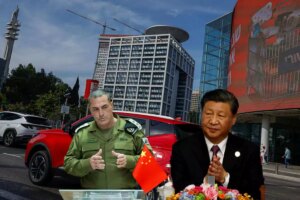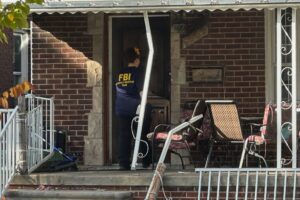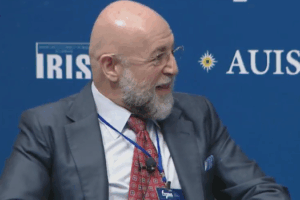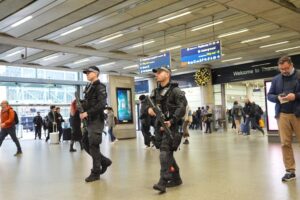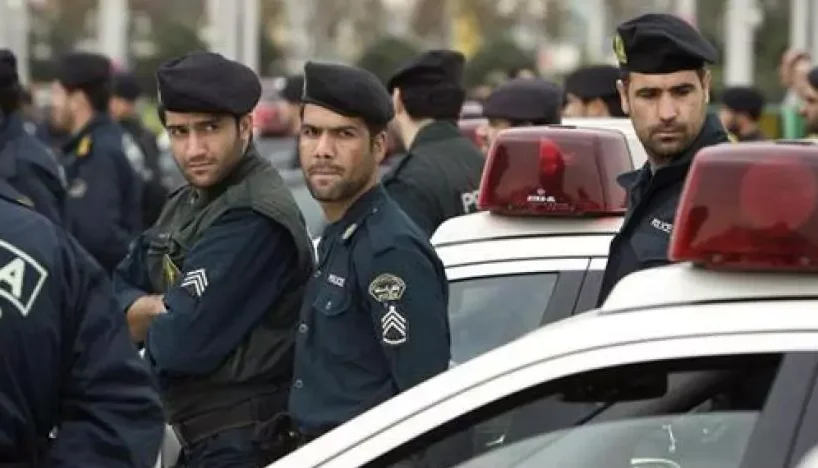
2025-09-19T05:38:08+00:00
font
Enable Reading Mode
A-
A
A+
Shafaq News
– Baghdad
Iraqi police
continue to suffer heavy casualties in tribal disputes and armed
confrontations, raising concerns about the force’s vulnerability within the
country’s security apparatus.
In recent
days, two federal police officers were killed and five others injured while
attempting to end an armed tribal conflict in eastern Baghdad. According to the
Interior Ministry, the unit came under direct fire during the operation in the
al-Saada area.
Tribal
disputes, criminal pursuits, and arrests of high-profile suspects represent
some of the gravest risks for police forces. While security agencies remain
central to state stability, tribal clashes often escalate into battles
involving medium weapons and mortars, particularly in southern provinces such
as Maysan, Dhi Qar, and Basra, where tribal arsenals sometimes surpass police
firepower.
Interior
Ministry spokesman Abbas al-Bahadli told Shafaq News that the ministry is
“determined to enforce the law and assert the authority of the state against
anyone who threatens public security and community peace.” He highlighted major
achievements in crime prevention, counter-narcotics operations, and the arrest
of key drug traffickers, stressing that tribal conflicts now rank alongside
terrorism and cross-border crimes in the ministry’s priorities.
Al-Bahadli
noted that the recent attack on police officers was complicated by the presence
of women and children used as human shields, preventing security forces from
storming a house under fire. “Police will not abandon their duties or submit to
tribal pressure,” he added, citing 166 arrests carried out in Baghdad’s
al-Rashad and al-Ma’amel districts in recent operations targeting drug
traffickers, thieves, and armed groups.
Security
analyst Sarmad al-Bayati warned that “officers often face ambushes from hidden
firing positions or sudden armed assaults inside residential areas, which
leaves them exposed to serious losses.” He called on the government to provide
advanced weapons, better field training, and stronger institutional protection
against tribal retaliation.
Tribal
leaders, meanwhile, insist they stand behind the state. Sheikh Nafe’ Faiq of
the al-Bu Shama tribe told Shafaq News that Iraq’s clans “stand as one with the
security forces in enforcing the law and strengthening state authority,”
rejecting any attack on police. He dismissed claims of widespread tribal
settlements in cases involving security personnel, describing them as rare
exceptions.
Legal
experts argue that outdated legislation is another factor undermining the
police. Consultant lawyer Kamil Wadi told Shafaq News that “Iraq still relies
on the Penal Code of 1969, forcing police to apply outdated provisions to
modern crimes,” pointing out that the absence of updated legal tools leaves
officers exposed in complex tribal disputes, where existing laws fail to
protect them.
“The lack of
modern policing legislation has created dangerous gaps that neither the
government nor parliament has seriously addressed, despite repeated tragedies,”
Wadi added.
A federal
police officer, speaking on condition of anonymity, told Shafaq News that
bureaucratic delays often weaken response. “In many incidents, we cannot
intervene without direct orders from superiors, which costs precious time in
armed disputes or terror attacks,” he said. Fear of reprisals in southern
regions with strong tribal influence also discourages officers from acting
decisively.
The officer
warned that unless the government closes the legal gaps, modernizes police
protection laws, and strengthens coordination with tribes, Iraq’s police will
remain “the weakest link in the country’s security system.”
Written and
edited by Shafaq News staff.

